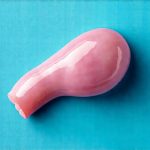Cystitis, often described as inflammation of the bladder, is a common condition predominantly affecting women. It manifests with uncomfortable symptoms like frequent urination, a burning sensation during urination, and lower abdominal discomfort. Irritable Bowel Syndrome (IBS), on the other hand, is a chronic gastrointestinal disorder characterized by abdominal pain, bloating, gas, diarrhea, and/or constipation. While seemingly disparate conditions impacting different parts of the body, there’s growing evidence suggesting a significant overlap between cystitis and IBS – more than just coincidence. Many individuals experiencing one condition also report symptoms indicative of the other, leading researchers and healthcare professionals to explore potential links and underlying mechanisms connecting these two troublesome ailments.
The relationship isn’t fully understood, but it appears to be bidirectional: meaning that having one condition can increase your risk of developing the other. This connection likely stems from a complex interplay of factors involving the gut-bladder axis – a concept recognizing the close communication between the digestive system and the urinary tract. Disruption in gut microbiome composition, chronic inflammation, heightened nervous system sensitivity (visceral hypersensitivity), and psychological stress are all potential contributors to this interconnectedness. Understanding these links is crucial not only for accurate diagnosis but also for developing more holistic and effective treatment strategies that address both conditions simultaneously.
The Gut-Bladder Axis: A Two-Way Street
The gut-bladder axis isn’t a new concept in medical science; it builds upon the established understanding of the ‘gut-brain axis’. This acknowledges the bidirectional communication between the gastrointestinal tract and the central nervous system. Now, research is expanding to include other organs, recognizing that disruptions in one area can impact others throughout the body. In the context of cystitis and IBS, this connection appears strong. A compromised gut microbiome – an imbalance in the bacterial populations residing within the intestines – can lead to increased intestinal permeability (often referred to as ‘leaky gut’). This allows substances like bacteria and undigested food particles to enter the bloodstream, triggering systemic inflammation.
This inflammatory response isn’t localized; it can impact distant organs, including the bladder. Chronic inflammation is a hallmark of both conditions. Furthermore, the nervous systems regulating bowel function and bladder control are closely intertwined. Visceral hypersensitivity – an increased sensitivity to stimuli in the gut or bladder – is common in both IBS and cystitis sufferers. This means that even normal bodily functions can be perceived as painful or uncomfortable. Consequently, inflammation within the gut could potentially exacerbate bladder symptoms, and vice versa. It’s a complex feedback loop where one condition can amplify the other. It’s important to note that diet and cancer may also play a role in overall health and inflammation levels.
Beyond inflammation and nerve sensitivity, the microbiome itself plays a direct role. Certain bacterial species found in the gut can produce metabolites that influence bladder health. An imbalance in these bacteria might contribute to changes in urine composition or impact the immune response within the urinary tract. The vagus nerve – a cranial nerve connecting the brain to many internal organs including the gut and bladder – also serves as a key communication pathway, transmitting signals between these systems.
Potential Underlying Mechanisms & Contributing Factors
Several factors could explain the strong association between cystitis and IBS. Chronic stress is high on the list. Stress significantly impacts both gut health and bladder function. It can disrupt the microbiome, increase intestinal permeability, and heighten visceral hypersensitivity. Individuals experiencing chronic stress are more prone to developing both conditions. Dietary habits play a crucial role too. Diets rich in processed foods, sugar, and unhealthy fats can contribute to inflammation and dysbiosis (microbiome imbalance). Conversely, diets abundant in fiber, fruits, vegetables, and probiotics promote gut health and may help alleviate symptoms of both cystitis and IBS.
Hormonal fluctuations, particularly in women, are also implicated. Hormonal changes during menstruation, pregnancy, or menopause can affect bladder function and intestinal motility. This can contribute to symptom flares in both conditions. Furthermore, genetic predisposition could play a role, making some individuals more susceptible to developing either or both conditions. It’s unlikely there’s a single cause; rather, it’s likely a combination of these factors interacting with each other that contributes to the development and progression of cystitis and IBS. Identifying individual triggers and tailoring treatment approaches accordingly is vital for successful management. Considering generic and brand-name urology drugs can also be part of this tailored approach.
The Role of Inflammation
Inflammation isn’t simply a symptom; it’s often a driving force behind both cystitis and IBS. In cystitis, inflammation targets the bladder lining, causing pain, urgency, and frequency. However, this inflammation doesn’t exist in isolation. As discussed earlier, gut dysbiosis can lead to systemic inflammation that reaches the bladder. Similarly, chronic inflammation within the gut – a hallmark of IBS – can affect other bodily systems, potentially exacerbating bladder symptoms. Identifying and addressing sources of inflammation is therefore critical for managing both conditions.
- Dietary changes, such as reducing processed foods and increasing anti-inflammatory foods (like omega-3 fatty acids), can help mitigate inflammation.
- Probiotics may help restore a healthy gut microbiome and reduce intestinal inflammation.
- Stress management techniques like yoga, meditation, or deep breathing exercises can also lower inflammatory markers in the body.
Visceral Hypersensitivity & Pain Perception
Visceral hypersensitivity – an increased sensitivity to pain in the abdominal and pelvic regions – is a common feature of both IBS and cystitis. This means that even normal bodily functions, like bladder filling or intestinal movement, can be perceived as painful or uncomfortable. The exact mechanisms underlying visceral hypersensitivity are still being investigated, but it’s believed to involve changes in nerve signaling and brain processing. Individuals with heightened visceral sensitivity often experience more severe symptoms and have a lower pain threshold.
- Cognitive behavioral therapy (CBT) can help patients reframe their perception of pain and develop coping strategies.
- Low-dose antidepressants – specifically tricyclic antidepressants or selective serotonin reuptake inhibitors (SSRIs) – are sometimes used to modulate nerve signaling and reduce visceral hypersensitivity, even in the absence of depression.
- Pelvic floor physical therapy can strengthen pelvic muscles and improve bladder control, potentially reducing pain perception.
The Microbiome’s Influence on Bladder Health
The gut microbiome isn’t just about digestion; it profoundly impacts overall health, including urinary tract function. An imbalanced microbiome (dysbiosis) can contribute to cystitis in several ways. Certain bacteria produce metabolites that influence bladder inflammation and immune response. Others can alter the composition of urine, creating a more favorable environment for bacterial growth. Moreover, dysbiosis increases intestinal permeability, leading to systemic inflammation that impacts the urinary tract. Understanding the potential correlation between insomnia and kidney stones may also be relevant when considering overall health factors impacting these conditions.
- Probiotic supplements containing specific strains known to promote gut health may be beneficial.
- Prebiotics – non-digestible fibers that feed beneficial bacteria in the gut – can help restore microbiome balance.
- A diet rich in fiber, fruits, and vegetables supports a healthy gut microbiome and improves bladder function. Fermented foods like yogurt, kefir, and sauerkraut also provide probiotics.
It’s important to remember that this is a complex interaction. More research is needed to fully understand the intricacies of the gut-bladder axis and develop targeted treatment strategies. However, recognizing the link between cystitis and IBS empowers individuals to take a more holistic approach to their health, addressing both conditions simultaneously for optimal well-being.





















